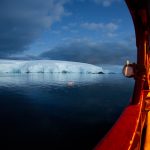 August 30, 2019 10:19 am
Published by Climate Extremes
August 30, 2019 10:19 am
Published by Climate Extremes
This project will apply a state of the art, hierarchical Bayesian modelling framework to determine how past climatic conditions influence current responses to high CO2concentrations. The project will use data from a new, specially-designed experiment, as well as results from past Free-Air Carbon dioxide Enrichment (FACE) and Open-top chamber (OTC) experiments, to close this knowledge gap.
 August 29, 2019 1:53 pm
Published by Climate Extremes
August 29, 2019 1:53 pm
Published by Climate Extremes
As part of our first-ever combined Centre of Excellence media communication workshop, Anne Meyer from the ARC Centre of Excellence in Convergent Bio-Nano Science and Technology produced this cheat sheet for non-verbal communication.
 April 29, 2019 10:22 am
Published by Climate Extremes
April 29, 2019 10:22 am
Published by Climate Extremes
This project will apply state-of-the-art computational fluid dynamics (CFD) simulations of microscale urban flow such as large eddy simulations to develop a 1-D (multi-layer) model of turbulent flow with detailed parameterisation regarding the role of geometry; surface heating and material; and vegetation.
 March 29, 2019 1:53 pm
Published by Climate Extremes
March 29, 2019 1:53 pm
Published by Climate Extremes
After some well deserved (and in many cases long overdue) summer holidays the Centre has seen a rapid ramp up of research in the last couple of months. Cross research program collaboration has intensified, focussed on improving our modelling systems, using our models to examine key phenomenon and in particularly how we can improve the representation of extreme events.
 February 5, 2019 12:53 pm
Published by Climate Extremes
February 5, 2019 12:53 pm
Published by Climate Extremes
We can expect more occurrences of extreme weather associated with eastern Pacific El Niño events (the strongest and most destructive of the two types of El Niño events), which will have pronounced implications for the twenty-first century climate, extreme weather and ecosystems.
 January 30, 2019 12:44 pm
Published by Climate Extremes
January 30, 2019 12:44 pm
Published by Climate Extremes
In this study a very high-resolution simulation of a Hector thunderstorm – a large regularly occurring storm near Darwin – is analysed and the hydrating properties of the overshoots are examined.
 January 18, 2019 10:43 am
Published by Climate Extremes
January 18, 2019 10:43 am
Published by Climate Extremes
Antarctic sea ice extent underwent a rapid decline in the spring of 2016 and is still well below average now. CLEX researchers have tied the decline to natural variability of both the atmosphere and ocean in two articles published in Nature Communications this month.
 August 3, 2018 6:26 am
Published by Climate Extremes
August 3, 2018 6:26 am
Published by Climate Extremes
CLEX Chief Operating Officer Stephen Gray welcomes us all to the first newsletter of the ARC Centre of Excellence for Climate Extremes, celebrates the legacy of ARCCSS and touches on where we are going with open access publications.
 June 20, 2018 12:56 am
Published by Climate Extremes
June 20, 2018 12:56 am
Published by Climate Extremes
Drawing on 5 years of experience as an editor for Geophysical Research Letters, Peter Strutton presented a talk that covered what happens between submission of a manuscript and eventual acceptance or rejection. Specific topics included the importance of cover letters, dealing with rejection, addressing reviewers’ comments and considerations around authorship.









